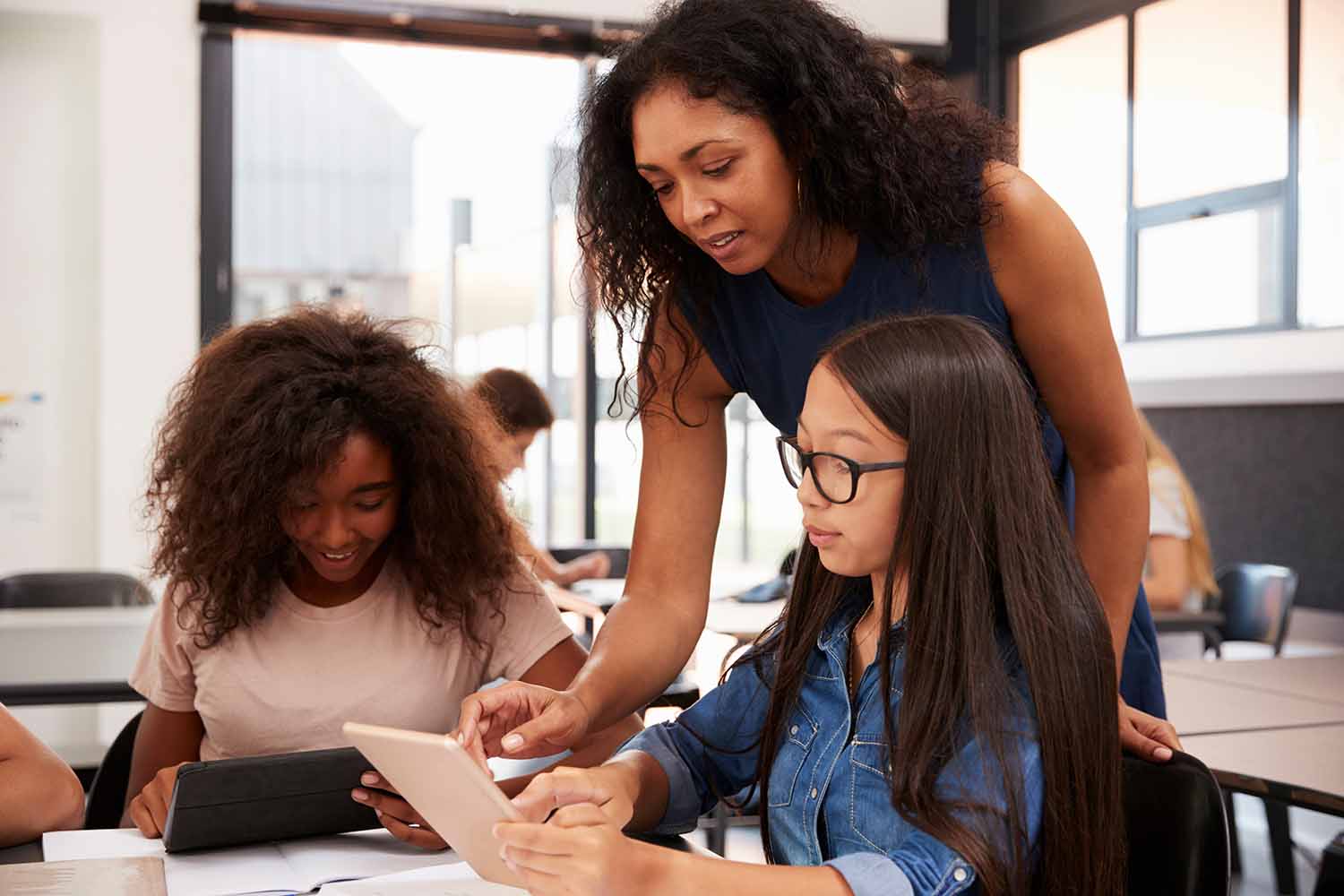Building Great Relationships With Students: 6 Things Teachers Need
As an educator, it’s important to make sure your students achieve academic success. But one of the most important – and rewarding – aspects of teaching is the relationships and community that you build with your students.
Positive student-teacher relationships can be life-changing. So many of us can look back on our childhoods and remember a teacher who had a powerful impact on our lives.
Why Building Relationships With Students Matters
As an educator, one of the biggest ways you can have an impact on students is by building strong and positive relationships with them.
The research supports the importance of strong teacher-student relationships. According to studies, building strong relationships with your students can:
- Improve students’ academic performance
- Improve student behaviors
- Help students be more motivated and engaged in their own learning
- Help students with school adjustment
- Improve students’ social skills
- Lead to less truancy and school avoidance
Having a strong relationship with at least one adult in their life is also a known protective factor against the effects of trauma. Trauma is the emotional response to any terrifying or life-threatening event that you may go through. Sadly, trauma isn’t as rare as you might think – more than two-thirds of kids report going through at least one traumatic experience before they turn 16.
Traumatic events during childhood (also called adverse childhood experiences, or ACEs) have been linked in research to negative outcomes as adults, including an increased rate of crime, substance use, and mental illness.
But many kids experience ACEs and still grow up to be successful and happy adults. This is called resilience, or the ability to bounce back from negative life experiences. Scientists are still studying all of the factors that contribute to resilience, but we know that a caring relationship with an adult is one of them.
You may not be aware of which of your students has gone through trauma. By building strong relationships with as many of them as you can, you can help all of them be more resilient.
On top of the benefits for students, strong teacher-student relationships can help teachers, too. Teachers who have positive relationships with their students may feel more joy in their profession and be less likely to burn out.
But what, exactly, defines a strong student-teacher relationship? Here are 6 things teachers need to implement.
6 elements of Strong Student-Teacher Relationships

But what, exactly, defines a positive student-teacher relationship?
In general, strong student-teacher relationships are filled with trust, but not overdependence. Students can talk to their teacher about their life problems, but the teacher is a respected guide, not a peer or a friend.
Here are six characteristics that define a strong student-teacher relationship. How many of them describe the relationships that you have with your students?
Emotional safety
For your students to be able to trust you, they need to feel emotionally safe. Especially if they’ve experienced a trauma, it might be hard work to help a child feel safe with you – but these efforts are almost always worth it.
To feel emotionally safe is to be able to trust that the other person does not intend to harm you. When there is emotional safety at school, students understand that you, their teacher, will not reject them or withhold your affection, even when they’ve behaved badly. They will not be judged for who they are.
Predictability is also a big part of emotional safety – your students need to know that you react in predictable ways in similar circumstances. If you let the student go after one behavior but lose your temper when they display this behavior again, then this may make you seem unpredictable (and unsafe) to students who’ve been through trauma.
Communication
Another feature of a strong student-teacher relationship is healthy communication. You should feel like you are able to communicate with your student without misinterpretations or confusion. Good communication is clear and kind.
In a healthy student-teacher relationship, the student should also feel like they are able to communicate with you. Communication is a two-way street. Students who have strong relationships with their teachers feel safe enough to let them know when something is wrong in their life or when they need support, without fear of judgment.
Feedback
Likewise, two-way feedback is also an important aspect of strong student-teacher relationships. Both you and your student should be able to both give and receive feedback. In a strong student-teacher relationship, the teacher is able to give “negative” feedback to the student without a strong emotional reaction. The student trusts that the teacher is protecting their best interests.
Teachers also give lots of positive feedback. They always keep one eye on their students’ strengths and make sure that their students know when they’ve done something well.
In a strong student-teacher relationship, the teacher can also take feedback from the student. If your student respectfully gives you feedback about something they’d like for you to do differently, don’t punish them for it. Listen non-judgmentally and work together to come up with a solution.
Mutual trust
Trust also goes both ways in a strong student-teacher relationship.
Do your students trust you? This doesn’t mean that they need to trust you with their deepest secrets. But do they trust that you have their best interests at heart? Do they trust that, if they tell you something confidential, you won’t use this information against them?
And do you trust them? Do you trust that they respect you as their educator and mentor? Do you trust them to do their best and to come to you if they need support?
Equity between students
For students to be able to trust their teachers, they need to see that there is all students are treated equally. You’ve probably heard students complain, “My teacher picks on me and is out to get me.” This may be because the student doesn’t observe equity between students in the classroom.
Students should be able to see that you give a fair shot to everyone in your classroom. You don’t play favorites, and consequences and rewards are predictable across all students.
This doesn’t mean that you treat every student exactly the same. Some students may need your support more than others. Equality means every student is treated exactly the same, no matter what they’re struggling with. Equity means that you understand that you consider each student’s existing resources and divide your support to help all of your students achieve the same outcome.
Empathy
To put it simply, empathy is the ability to see the world through another’s eyes and believe that their worldview is valid. It’s not about walking in your students’ shoes, which you’ll never be able to do. It’s about listening to them without judgment when they tell you what it’s like to be them.
For example, say a student tells you they’ve been abused. As a result, they aren’t able to concentrate at school. If you’ve never experienced abuse, then you may not be able to “walk in their shoes.” But you can imagine what the world probably looks like through your student’s eyes.
You can also believe them when they tell you that this experience causes them to lose focus. Empathy is not about saying, “You shouldn’t let something like that bother you so much,” or “If it were me, I wouldn’t let something like that get in the way of my success.” To show empathy, listen to and believe your students when they tell you about their experiences.
Calm Classroom Can Help Strengthen Student-Teacher Relationships
Mindfulness is one proven strategy that helps strengthen interpersonal relationships. By practicing mindfulness together with Calm Classroom exercises, you can improve your relationships with your students while you all learn how to manage stress and develop self-awareness as a class.
Get in touch with the Calm Classroom team for a free trial of our mindfulness exercises. You can also check out our recent blog post for more information about how to build strong relationships with your students.





SIGN UP FOR OUR NEWSLETTER